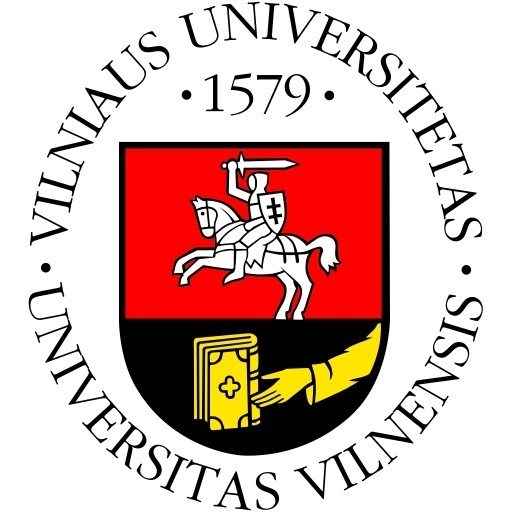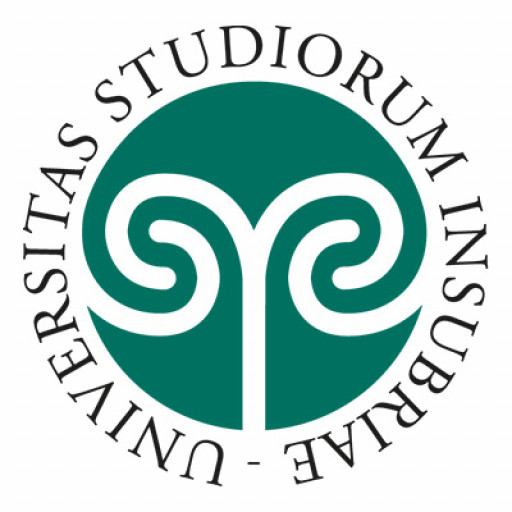Photos of university / #vilniusuniversity
International Communication at Vilnius University is an interdisciplinary program designed to equip students with comprehensive knowledge and practical skills in the field of global communication, media, and intercultural relations. This programme aims to prepare graduates for successful careers in international organizations, media outlets, public relations, diplomacy, and multicultural environments. Throughout the course of study, students explore the theoretical foundations of communication theories, cross-cultural understanding, media production, and digital technologies that shape the modern information landscape. The curriculum covers key topics such as media literacy, intercultural communication, international public relations, journalism, digital communication, and strategic communication management. Emphasizing both theoretical knowledge and practical skills, the programme offers hands-on experience through workshops, projects, and internships, fostering critical thinking and adaptability in rapidly changing global contexts. Students also have opportunities to enhance their language proficiency and intercultural competence by engaging with diverse international student communities and participating in exchange programmes. The programme is delivered by experienced academics and industry professionals who bring real-world insights into the classroom, ensuring that graduates are well-prepared to meet the demands of international communication environments. Upon completing the degree, graduates will be capable of analyzing and managing communication strategies across various cultural and media contexts, utilizing digital tools effectively, and contributing to building mutual understanding in international settings. Vilnius University’s International Communication programme supports students in developing a global perspective, ethical awareness, and innovative approaches to communication challenges faced in today’s interconnected world. This versatile degree opens pathways to careers in journalism, public diplomacy, media consultancy, corporate communication, non-governmental organizations, and beyond. With a strong emphasis on intercultural competence, media skills, and strategic thinking, the programme ensures graduates are ready to thrive in diverse international workplaces and contribute meaningfully to global societal development.
The International Communication undergraduate programme at Vilnius University provides students with a comprehensive understanding of global communication processes, media, and intercultural relations. Throughout the course, students will explore various aspects of international media, professional communication strategies, and the role of communication in fostering international cooperation and understanding. The programme emphasizes both theoretical knowledge and practical skills, preparing graduates for careers in international organizations, media outlets, public relations firms, and diplomatic services.
Students will study core modules such as intercultural communication, global media systems, media law and ethics, international public relations, and communication technology. Additionally, the curriculum includes language courses, enabling students to communicate effectively in at least one foreign language, which is essential for international careers. Practical training sessions, internships, and project work are integral components of the programme, providing hands-on experience in real-world communication settings.
The programme also encourages critical analysis of contemporary issues such as digital globalization, media convergence, and the impact of social media on public discourse. Students are equipped to analyze media content from different cultural perspectives, develop international communication campaigns, and understand the legal and ethical frameworks that govern media and communication practices worldwide. The multicultural environment of Vilnius University fosters intercultural understanding, providing students with valuable insights into cross-cultural communication challenges and solutions.
Graduates of the International Communication programme will possess strong analytical, intercultural, and media literacy skills, enabling them to adapt to the rapidly evolving landscape of international communication. They will be prepared to work in diverse international contexts, leveraging their knowledge and skills to promote understanding, dialogue, and cooperation across cultures. With a curriculum designed to meet the demands of the globalized media environment, this programme aims to cultivate future leaders in international communication and media industries.
Admission requirements for the International Communication program at Vilnius University typically include a completed secondary education diploma or equivalent, demonstrating satisfactory academic performance. Applicants are expected to submit a completed application form along with official transcripts, which should highlight proficiency in relevant subjects such as languages, social sciences, or humanities. Proficiency in English is mandatory; therefore, applicants generally need to provide proof of English language skills through standardized tests such as IELTS, TOEFL, or equivalent, with minimum scores stipulated by the university. Additionally, applicants may be required to submit a motivation letter outlining their interest in international communication, relevant experience, and career aspirations. Some applicants might need to participate in an interview or entrance exam to assess their suitability for the program. The program emphasizes critical thinking, intercultural competence, and communication skills, so a background or demonstrated interest in these areas can strengthen an application. International applicants must provide additional documentation, such as passport copies and, if necessary, visa requirements, to facilitate enrollment. The university encourages applicants to review specific admission deadlines and eligibility criteria on its official website, as requirements can vary slightly each academic year. English language proficiency is essential given the program's international scope, and applicants are advised to prepare their documents early to meet all application deadlines. In summary, the program’s admission process seeks motivated and academically prepared students with strong communication skills and intercultural awareness, ensuring they are well-equipped to thrive in a globalized environment of international communication.
Tuition fees for the International Communication program at Vilnius University are structured to accommodate both local and international students, offering transparent and competitive pricing to facilitate access to quality higher education. The program's tuition fees vary depending on the student's nationality and specific study track, with Lithuanian and EU students benefiting from subsidized rates, while international students from outside the EU typically pay higher tuition fees. For Lithuanian and EU students, the annual tuition fee generally ranges from approximately €2,000 to €3,500, depending on the faculty regulations and any scholarships or discounts that may be applicable. International students from non-EU countries usually pay of around €4,000 to €6,000 per year, reflecting the program's position within the European higher education framework.
Vilnius University offers various financing options to support students in funding their studies. These options include government scholarships, university scholarships, and financial aid programs designed to reduce the financial burden for eligible students. Government scholarships are often awarded based on academic merit, financial need, or a combination of both and may cover partial or full tuition fees. University scholarships are available for outstanding students and are accessible through competitive selection processes, encouraging academic excellence and active participation in university life. Additionally, students can apply for external scholarships provided by Lithuanian or international organizations, which may help cover living expenses or specific costs associated with studying abroad.
Aside from scholarships, students can explore student loan options, although the availability and conditions of such loans depend on individual circumstances and the provisions of Lithuanian banking and financial institutions. Many students also benefit from part-time work opportunities facilitated by the university's career services, allowing them to earn income while studying and gaining valuable professional experience. Furthermore, some students choose to study in an international joint degree or exchange programs, which may involve different financial arrangements and subsidies.
In terms of funding, Vilnius University actively encourages students to seek external funding sources and provides guidance on applying for scholarships and grants. Special initiatives aimed at promoting access to higher education include targeted scholarships for students from specific regions or backgrounds, aiming to increase educational equity and support socio-economically disadvantaged students. The university's commitment to inclusive education policy ensures that various financial aid mechanisms are in place to enable talented students to pursue their studies without undue financial hardship.
In summary, financing studies at Vilnius University for the International Communication program is facilitated through a combination of modest tuition fees, scholarships, potential student loans, part-time work opportunities, and external funding sources. The university continuously strives to improve accessibility and support students financially, making higher education affordable and attainable for a diverse student body.
International Communication at Vilnius University offers students a comprehensive understanding of the global communication landscape, blending theoretical foundations with practical skills. The program aims to prepare graduates for careers in various sectors such as media, public relations, journalism, advertising, international organizations, and diplomatic services. Students will explore topics including intercultural communication, media analysis, ethical issues in communication, digital media, and the role of communication in international relations. The curriculum is designed to develop critical thinking, effective communication skills, and cultural awareness, enabling graduates to navigate complex intercultural environments efficiently.
The program is delivered through lectures, seminars, workshops, and project-based learning, often incorporating collaboration with international partners and real-world projects. International Communication students have access to various resources, including modern media laboratories, language learning centers, and internships. The program emphasizes multilingual proficiency, as students typically learn several languages, enhancing their competitiveness in the global job market. The faculty comprises experienced academics and industry professionals who ensure that the teaching remains relevant to current global communication trends.
Students are encouraged to participate in exchange programs, internships, conferences, and workshops, which provide valuable international exposure and practical experience. Vilnius University boasts strong ties with media organizations, NGOs, government agencies, and international bodies, facilitating networking opportunities for students. Upon graduation, students are equipped with skills suitable for roles in international media, public diplomacy, corporate communication, and cultural exchange initiatives. The program also fosters research and analytical capabilities, laying a foundation for students interested in pursuing postgraduate studies in communication, media studies, or related fields.
Overall, International Communication at Vilnius University is designed to produce versatile, culturally aware, and skilled communication professionals who can operate effectively across diverse international contexts. The program combines academic rigor with practical relevance, ensuring graduates are prepared for the dynamic and ever-changing landscape of global communication.



